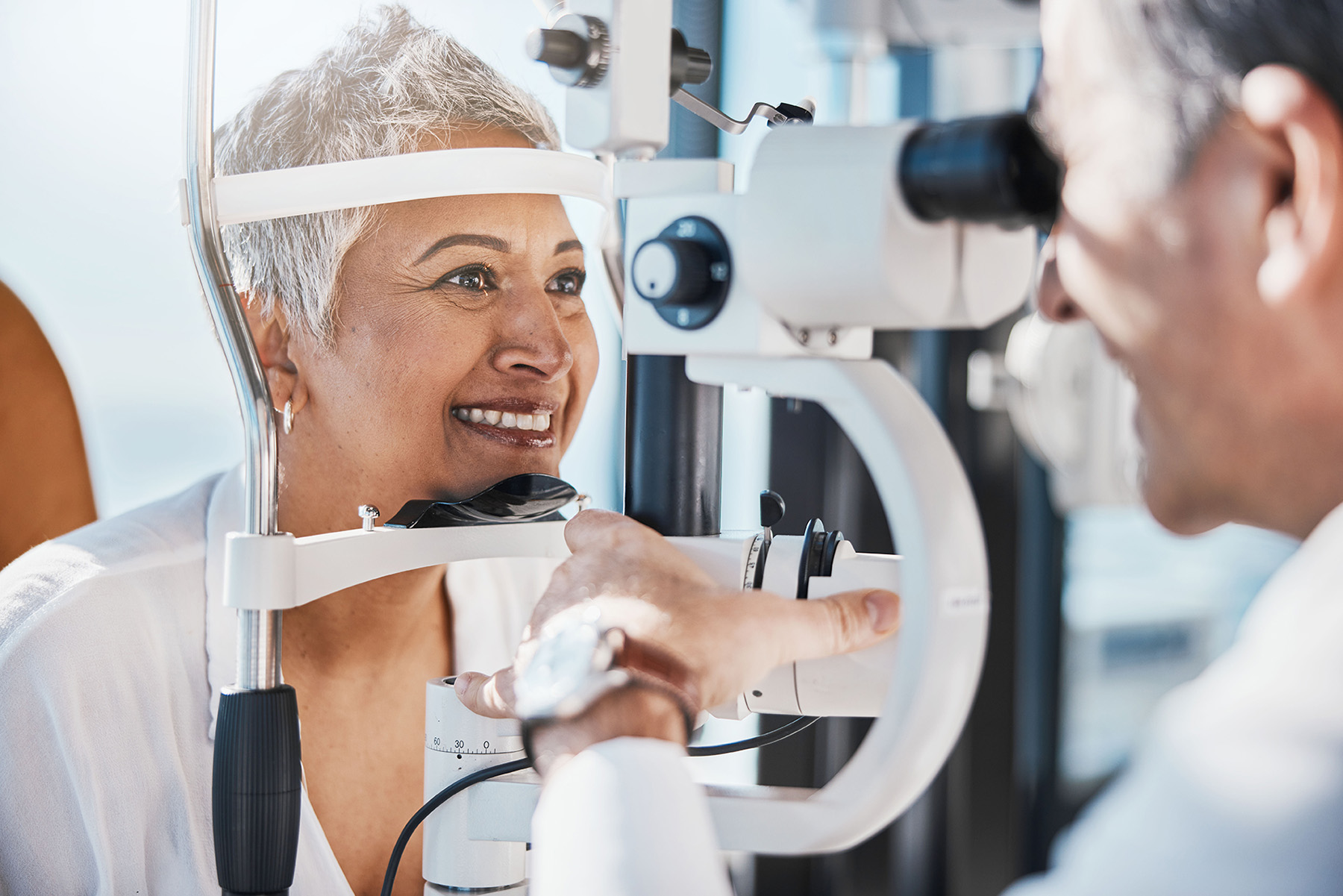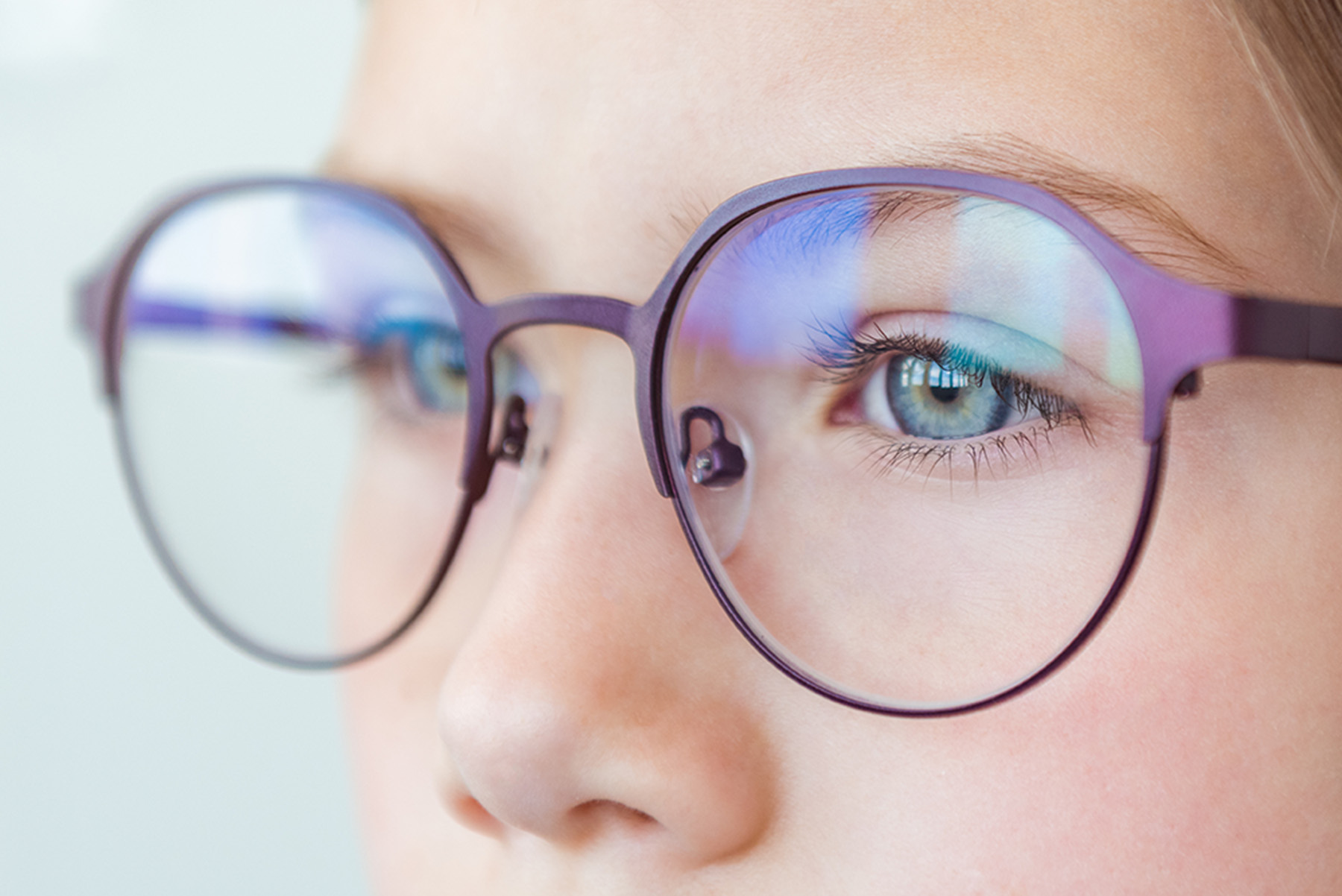Comprehensive Eye Exams in Parker, CO
Comprehensive eye exams are a thorough evaluation of your visual system and overall eye health. These exams go beyond a simple vision check and delve into various aspects of your eyes, including visual acuity, eye muscle coordination, eye pressure, and the overall health of your eyes. Comprehensive eye exams are essential for individuals of all ages, from children to seniors. They allow us to establish a baseline for your eye health, monitor any changes over time, and intervene promptly if necessary.

What to Expect at a Comprehensive Eye Exam?
- Medical History Discussion: Your eye doctor will begin by discussing your medical history, including any previous eye conditions, surgeries, or family history of eye diseases. This information helps provide valuable insights into your overall eye health and potential risk factors.
- Visual Acuity Test: This test evaluates the sharpness and clarity of your vision using an eye chart. You will be asked to read letters or symbols of various sizes to determine your visual acuity.
- Refraction Assessment: To determine the precise prescription for your glasses or contact lenses, your optometrist will perform a refraction assessment. This test helps identify refractive errors, such as nearsightedness, farsightedness, or astigmatism.
- Visual Field Test: This test assesses your peripheral vision by determining your ability to detect objects in your side vision while focusing on a central point. It helps detect any abnormalities or visual field loss.
- Binocular Vision and Eye Muscle Coordination: Your eye teaming and eye muscle coordination will be assessed to ensure that your eyes work together effectively. Screening for this is done during a comprehensive eye examination to help detect any issues related to eye alignment and binocular vision.
- External and Internal Eye Health Evaluation: Your eye doctor will examine the external structures of your eyes, including the eyelids, cornea, conjunctiva, and iris. They will also use specialized instruments to assess the internal structures of your eyes, such as the lens, retina, and optic nerve. Dilation is included in this portion of the examination.
Why are Routine Eye Exams Important?
Early Detection and Prevention
One of the primary reasons for regular eye exams is early detection and prevention of eye conditions. Many eye diseases, such as glaucoma, macular degeneration, and diabetic retinopathy, often progress silently in their early stages without noticeable symptoms. Routine eye exams enable our optometrists to detect and diagnose these conditions in their early phases when treatment options are most effective.
Vision Correction
Routine eye exams are essential for assessing and correcting refractive errors, such as nearsightedness, farsightedness, and astigmatism. Your optometrist will perform thorough tests to determine your precise prescription and prescribe eyeglasses or contact lenses that suit your visual needs.
Monitoring Eye Health
Regular eye exams allow your optometrist to monitor your eye health over time. By comparing the results of each exam, they can identify changes or abnormalities that may indicate the development of an eye condition. Monitoring your eye health allows for timely interventions and ensures you receive appropriate care to prevent vision loss or complications.
Prescription Updates
Lifestyle changes, aging, and other factors can cause your vision to change over time. Regular eye exams allow your optometrist to monitor these changes and update your prescription accordingly. By keeping your prescription up to date, you ensure that you have the most accurate and comfortable vision correction.
Visual Therapy Services that Unlock Your Vision Potential
Book Your Appointment Today
What Conditions Can Be Detected During an Eye Exam?
Comprehensive eye exams at Good iSight can help identify various eye conditions, including:
- Refractive Errors
- Glaucoma
- Cataracts
- Age-Related Macular Degeneration
- Diabetic Retinopathy
- Retinal Detachment
- Dry Eye Syndrome
- Eye Infections
- Corneal Conditions
- Strabismus (Eye Misalignment)
- Amblyopia (Lazy Eye)
- Color Vision Deficiency
How Often Should You Get an Eye Checkup?
The frequency of eye checkups can vary depending on your age and overall eye health. Pediatric eye exams are important to ensure proper vision development and detect any early signs of eye conditions. The American Optometric Association (AOA) recommends scheduling the first eye exam for children at around 6 months, followed by additional exams at age 3, before starting school, as the optometrist recommends.
For adults with no known eye conditions or risk factors, a comprehensive eye exam every two years is often sufficient. However, it’s important to note that individual needs may vary, and your optometrist may recommend more frequent checkups based on your specific circumstances. As we age, the risk of developing age-related eye conditions increases. The AOA recommends annual eye exams for adults 60 and older to monitor eye health, detect conditions like glaucoma and macular degeneration, and ensure timely intervention.

Comprehensive Eye Exams in Parker, CO
Regular eye checkups are an essential part of maintaining optimal eye health and ensuring clear, comfortable vision. Dr. Good and our dedicated team are committed to providing comprehensive eye care and personalized attention to each of our valued patients. Contact us today to schedule your eye checkup at Good iSight in Parker, CO.
